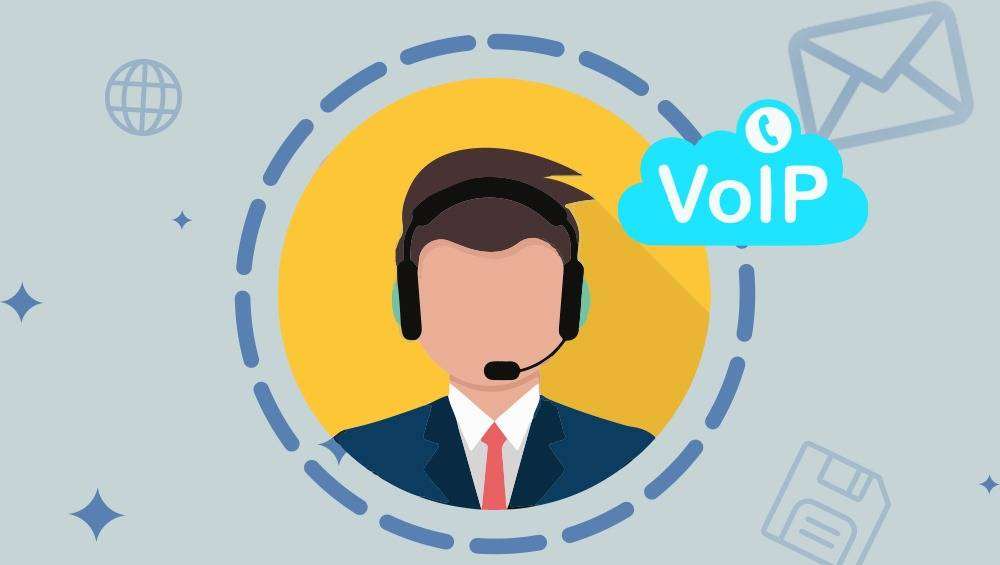In the digital age, communication has transcended traditional boundaries, and Voice over Internet Protocol (VOIP) has emerged as a revolutionary technology. With the convenience and cost-effectiveness it offers, VOIP has become a popular choice for individuals and businesses alike. However, as with any technology that involves the transfer of sensitive information, concerns about security and privacy inevitably arise. One pressing question that often lingers in the minds of VOIP users is, “Can VOIP calls be tapped?”
In this blog, we will delve into the intricacies of VOIP technology, exploring the possibilities and limitations of a temporary number app when it comes to the security of VOIP calls.
Understanding the Basics of VOIP
To comprehend the security aspects of VOIP, it’s essential to first grasp the fundamentals of how VOIP works. Unlike traditional telephone systems that rely on dedicated lines, VOIP converts voice signals into digital data packets and transmits them over the Internet. This transformation allows for more efficient and cost-effective communication, but it also introduces potential vulnerabilities.
One of the primary concerns with VOIP security is the interception of calls. “Can VOIP calls be tapped?” This question isn’t merely speculative; it delves into the real-world risks associated with the transmission of voice data over the Internet.
Encryption: The Guardian of VOIP Security
The security of VOIP calls largely depends on the implementation of encryption protocols. Encryption serves as a shield, protecting the contents of a conversation from prying eyes. Without proper encryption, VOIP calls become susceptible to eavesdropping and interception.
“Can VOIP calls be tapped” if encryption is in place? The short answer is that encryption significantly reduces the risk. When calls are encrypted, the data packets containing voice information are transformed into unreadable code, making it extremely challenging for unauthorized entities to decipher the content.
However, not all VOIP services are created equal, and the level of encryption employed can vary. It is crucial for users to opt for reputable VOIP service providers that prioritize security and use robust encryption protocols to safeguard communication.
Risks and Vulnerabilities
While encryption provides a strong defense against interception, it is not a foolproof solution. Several factors contribute to the risks associated with VOIP calls, making it essential to remain vigilant about potential vulnerabilities.
Network Vulnerabilities
The very nature of VOIP, relying on the Internet for data transmission, exposes it to network vulnerabilities. Cybercriminals can exploit weaknesses in the network infrastructure to intercept VOIP calls. Utilizing secure networks and implementing firewalls can mitigate this risk to some extent.
Malware and Phishing Attacks
Malicious software and phishing attacks pose a significant threat to VOIP security. If a user’s device becomes infected with malware, it can compromise the integrity of VOIP calls. Additionally, phishing attacks may trick users into revealing sensitive information, allowing unauthorized access to their VOIP communications.
Lack of End-to-End Encryption
While many VOIP providers implement encryption, the effectiveness of this security measure depends on whether it is end-to-end. In some cases, calls may be encrypted within the provider’s network but decrypted at certain points, leaving a window of vulnerability. Opting for services that offer end-to-end encryption ensures a higher level of security.
The Role of Regulatory Compliance
In the pursuit of ensuring secure VOIP communications, regulatory compliance plays a pivotal role. Various countries have established regulations governing the use of VOIP services to protect user privacy and prevent illicit activities. Compliance with these regulations not only ensures legal adherence but also promotes a higher standard of security.
“Can VOIP calls be tapped” despite regulatory measures? Compliance with regulations certainly strengthens the security landscape, but it is not an absolute guarantee. It is essential for users to be aware of the regulations in their jurisdiction and choose VOIP providers that adhere to these standards.
Safeguarding VOIP Communications: Best Practices
To enhance the security of VOIP calls and mitigate the risks associated with potential tapping, users can adopt several best practices:
Choose a Secure VOIP Provider
The foundation of VOIP security begins with selecting a reliable and secure service provider. Conduct thorough research to identify providers with a track record of prioritizing user privacy and implementing robust security measures.
Implement Strong Authentication
Securing access to your VOIP account is crucial. Utilize strong, unique passwords and enable two-factor authentication (2FA) whenever possible. This adds an extra layer of protection, preventing unauthorized access to your VOIP communications.
Regularly Update Software
Keeping VOIP applications and related software up to date is essential for maintaining security. Updates often include patches for vulnerabilities, addressing potential loopholes that could be exploited by attackers.
Educate Users on Security Awareness
Human error remains a significant factor in security breaches. Educating users about potential threats, phishing scams, and the importance of secure communication practices contributes to a more resilient security posture.
The Future of VOIP Security
As technology continues to evolve, so do the challenges and solutions in the realm of VOIP security. The industry is witnessing advancements in encryption technologies, making it increasingly difficult for malicious actors to compromise VOIP calls.
While the question “Can VOIP calls be tapped” persists, the ongoing efforts to enhance security measures instill confidence in the reliability of VOIP technology. As users become more informed and proactive in adopting secure practices, the vulnerabilities associated with VOIP calls can be further minimized.
Conclusion
In conclusion, the security of VOIP calls hinges on a combination of encryption, regulatory compliance, and user awareness. While encryption serves as a formidable defense against tapping, users must remain vigilant about potential vulnerabilities and adopt best practices to safeguard their VOIP communications.
The question “Can VOIP calls be tapped” prompts us to explore the complexities of VOIP security, encouraging users to make informed decisions and take proactive measures to ensure the confidentiality of their communications. As technology advances, the future holds promise for even more robust security measures, reinforcing the trustworthiness of VOIP as a communication solution in the digital age.
